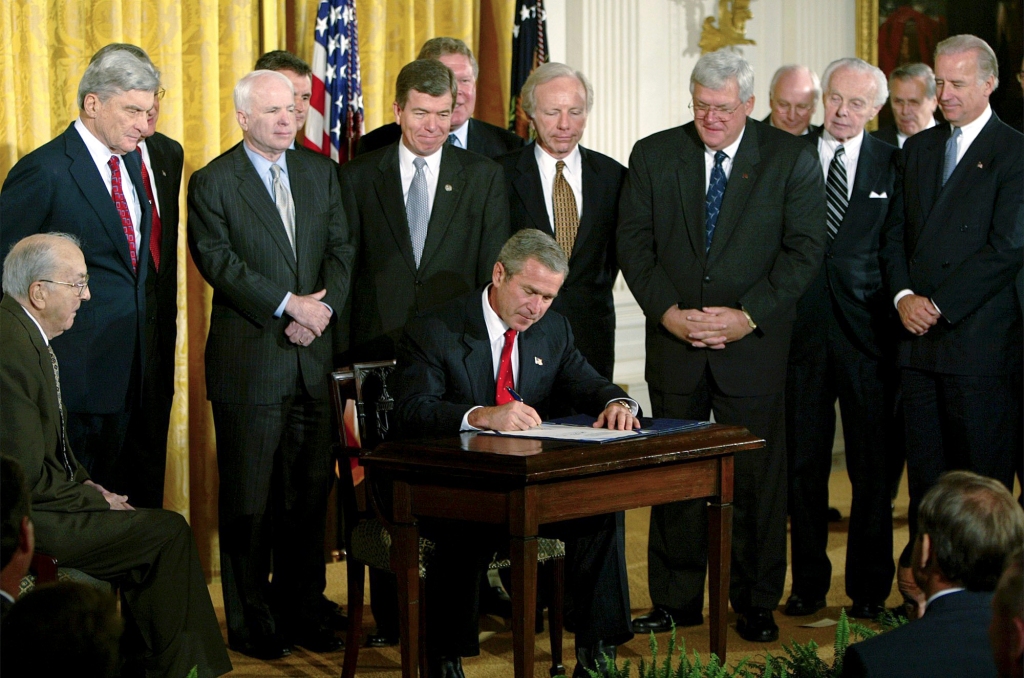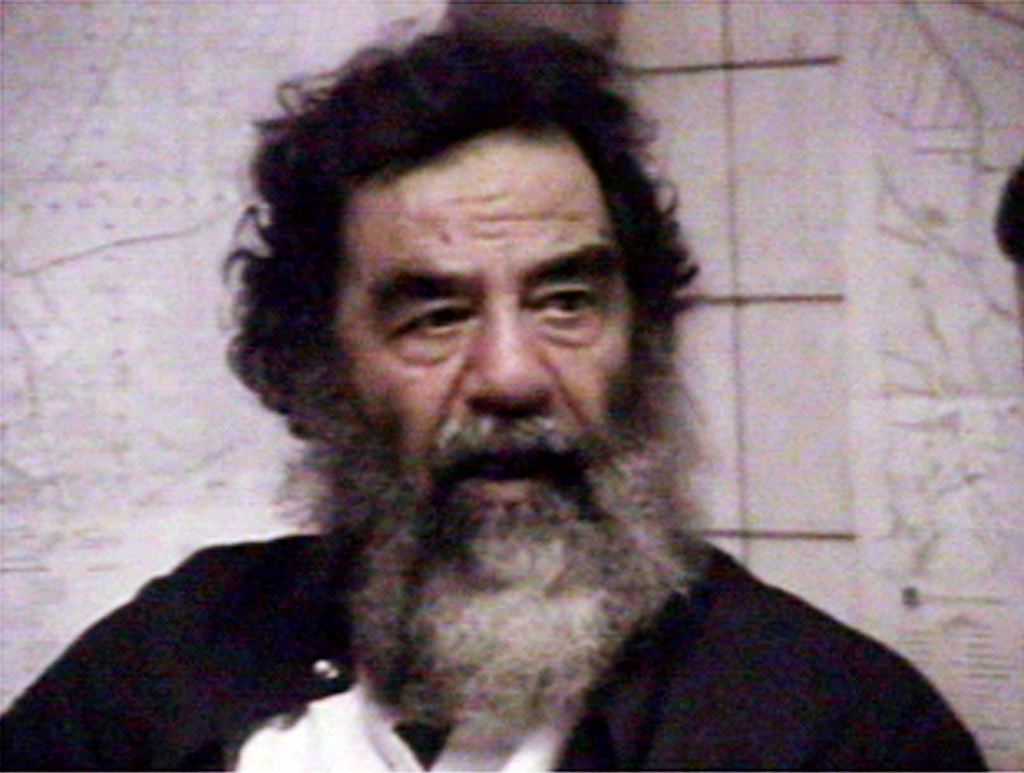Senate repeals Iraq war power authorization 20 years after US invasion
WASHINGTON — The Senate overwhelmingly voted Wednesday to repeal the 1991 and 2002 Authorizations for Use of Military Force (AUMF) against Iraq, days after the 20-year anniversary of the US invasion that deposed Saddam Hussein.
The Senate approved the measure 66-30, taking a big step toward formally ending the decades-long grant given the executive branch to wage war in the Middle Eastern country.
Eighteen Republicans joined 48 Democrats in supporting the bipartisan measure co-sponsored by Tim Kaine (D-Va.) and Todd Young (R-Ind.)
“These authorizations for long-ended wars [were] passed almost entirely by members of Congress long retired,” Young said Wednesday.
“These authorizations are outdated, they’re a detriment to our national security strategy and they’re an abdication of Congress’ constitutional role in declaring and, yes, ending wars,” he added.
Senators from both parties have long sought to repeal the AUMF in order to restrain the presidential power to direct forces overseas without legislative approval.
“We should never send our sons and daughters overseas without the consent of the American people through their elected representatives,” Sen. Dick Durbin (D-Ill.) said in a statement.
“Today, we are one step closer to finally terminating two outdated Iraq-related AUMFs and reasserting one of Congress’ most solemn responsibilities.”


The White House has indicated President Biden will sign the repeal legislation if it passes the House of Representatives.
The US invaded Iraq on March 20, 2003, after President George W. Bush’s administration accused Hussein of keeping weapons of mass destruction.
The Iraqi dictator was overthrown the following month, and US forces famously captured him in a hideout hole that December.
“Iraq is now a key partner for the United States in the Middle East,” Sen. Chris Coons (D-Del.) tweeted Wednesday.
“I hope the vote today will not only affirm our cooperative and strategic relationship with the country, but begin a new chapter in US-Iraq bilateral relations.”

While the Pentagon ended the US military’s combat mission in Iraq in December 2021, 2,500 troops have remained at the Baghdad government’s invitation to train and work with Iraqi forces.
“Today Iraq is a strategic partner, an ally in advancing stability across the Middle East,” Young said.
“A lot has changed in the last 20 years, and yet according to our laws, today we are still at war with Iraq.”
Republicans who voted against the repeal warned against further reducing America’s footprint in the Middle East following the August 2021 US withdrawal from Afghanistan.

“I sincerely would like to support this repeal,” Sen. Jim Risch (R-Idaho), the top Republican on the Senate Foreign Relations Committee, said on the Senate floor. “I really would, and I hope to be here when we do get to repealing at some point down the line. But now is not the time for it.
“The realities on the ground convince me I cannot support repealing at this time. We’ve got to deal with the world as it is.”
Some GOP senators on Tuesday criticized the Pentagon for not immediately informing Congress of last week’s deadly Iranian-backed militia drone attack on US forces in Syria as they debated a failed provision that would have postponed the AUMF repeal until Biden could certify that Iran stopped supporting terrorist groups in Iraq and Syria.
The amendment was voted down 63-32 – hours before Congress was informed of the attack.
Read the full article Here


